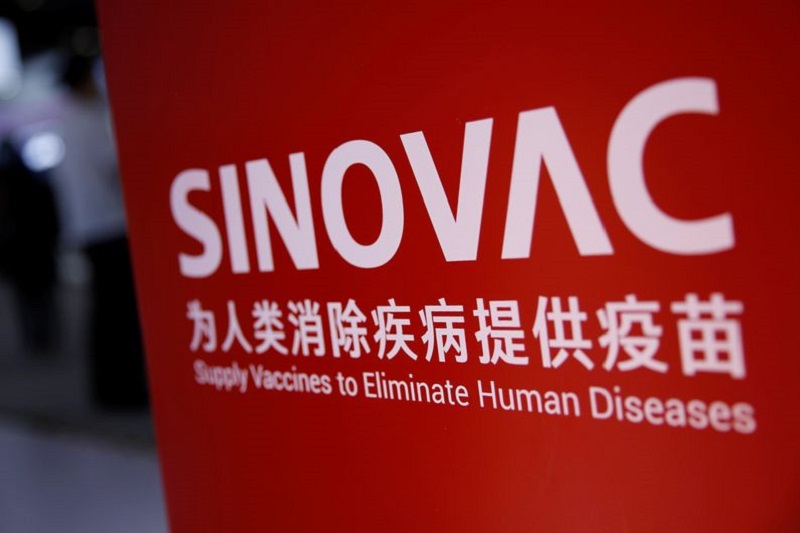Jan 14 (Reuters) - New efficacy data from Brazil on
Sinovac's COVID-19 vaccine, for which there are now four widely
different success rates, raised more questions than answers, as
many developing countries pin their hopes on the CoronaVac to
end the pandemic. are potential factors contributing to CoronaVac's
varying efficacy rates and expert interpretations.
HOW EFFECTIVE IS CORONAVAC?
Researchers in Turkey said it is 91.25% effective. Turkish
trials had included over 7,000 volunteers, but the efficacy
result was based on data from 1,322 people. Indonesia said the vaccine is 65% effective based on trials
involving some 1,600 people. Researchers in Brazil said it was 50.4% effective at
preventing symptomatic infections, barely enough for regulatory
approval and below the 78% announced a week earlier.
Brazil has run the biggest trials so far with around 13,000
participants. CONTRIBUTES TO DIFFERENT EFFICACY RATES?
Trial size, patient criteria, duration of post-vaccination
observation, target groups, prevalence of the virus in each site
are among the factors that could impact efficacy, experts said.
More rampant infections in Brazil than in other trial sites
and its study design to focus on medical workers could have led
to more mild infections in trials, thus lowering efficacy data,
a person familiar with the matter said.
The new lower efficacy finding included people with very
mild symptoms who did not need clinical assistance, while the
earlier reading was based on patients with symptoms that needed
some assistance, Brazilian researchers said.
IMPACT OF TARGET GROUPS
Brazil conducted trials with healthcare workers only, while
Turkey and Chile recruited both medical workers and general
public, and Indonesia general public only.
Medical workers could be more alert to mild symptoms and
report those more proactively than general public, which Sinovac
suspects may be among the reasons behind the less robust 50%
reading, the person said.
Fake positive results delivered by high-sensitivity COVID-19
tests may have also worsened the reading, the person added.
HOW EXPERTS INTERPRET IT?
Experts say it is difficult to interpret the efficacy
results as the full datasets are not out.
"This highlights the problem of issuing data by press
release rather than publication in a peer-reviewed journal,"
Lawrence Young, a virologist and professor at Britain's
University of Warwick, said.
Paul Hunter, professor in Medicine at University of East
Anglia, noted the dosage interval of two weeks was very short
and may have contributed to the less-than-impressive efficacy.
POSSIBLE TO COMBINE TRIAL RESULTS?
Sinovac said its trial designs are not identical among
countries, but the results are sufficient to prove that the
vaccine is safe and effective. Jerome Kim, head of vaccine research group International
Vaccine Institute said it would be possible to combine data from
multiple studies with varied trial designs but it could involve
additional statistical manipulation.
"That could compromise the clean interpretation of the
results, and may impact the chance for these data to be accepted
by regulatory bodies."
ARE RECIPIENT COUNTRIES WORRIED?
Indonesia and Turkey have approved the vaccine this week to
begin mass inoculation, with Indonesia's president taking the
shot on Wednesday to encourage vaccinations.
Philippine president defended the country's decision to buy
Chinese made vaccines, saying they are as good as the shots
developed by the Americans and the Europeans. In Brazil, a decision on the use of CoronaVac will be made
on Saturday.
SINOVAC NOT ALONE WITH VARYING SUCCESS RATES
A vaccine developed by Oxford University and AstraZeneca Plc
AZN.L has two different success rates.
It showed 62% efficacy when two full doses were administered
to adult participants of all age groups, but it rose to 90% in a
sub-group of smaller number of participants not older than 55
who were given a half-dose followed by a full dose booster.
On average its vaccine prevented 70% of COVID-19 cases in
late stage trials in Britain and Brazil. A vaccine developed by an affiliate of China's state-backed
Sinopharm showed 79.34% efficacy, lower than 86% announced by
the United Arab Emirates based on preliminary data from trials
there.
